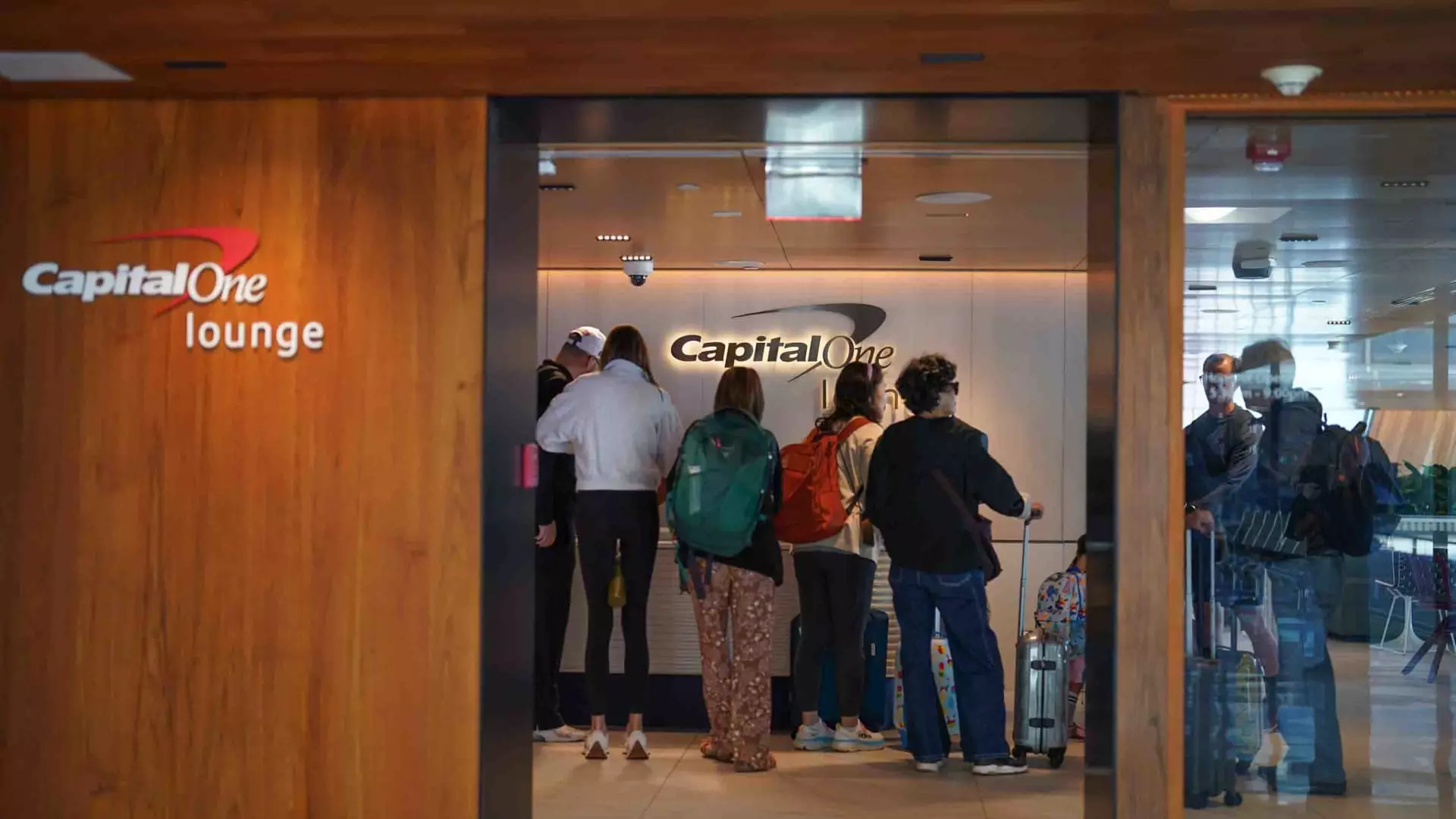In an age where air travel is more accessible than ever, a troubling contradiction is emerging: while airplane tickets are increasingly affordable, the luxurious sanctuaries of airport lounges are becoming elite enclaves reserved for the privileged few. Capital One’s recent policy changes, restricting access to its Venture X and Venture X Business cardholders, underscore this growing divide. As the cost of entrance into these comfortable, controlled environments rises, it’s clear that the dream of a relaxing airport experience is slowly slipping away, even for those willing to pay.
Locking the Gates: Capital One’s New Policies
With an annual fee that feels like a ticket to privilege, Capital One is laying down a hefty financial gauntlet. The introduction of a $125 fee for each additional cardholder to gain entry is not merely an inconvenience; it’s a clear message that the hallowed ground of airport lounges is no longer open to all. What was once an easy perk is now a labyrinth of fees—a staggering $45 per adult guest per visit and $25 for young travelers. This strategy may ostensibly aim to maintain a serene lounge atmosphere, but in reality, it exacerbates class separation. It caters to those who can throw down cash without a second thought, while the average traveler gets left in the dust.
Rising Barriers for the Average Traveler
The need to spend an eye-watering $75,000 annually simply to host guests paints a grim picture of the modern lounge experience. This new benchmark, echoing American Express’s own restrictive policies, serves as a testament to how rewards and perks are becoming increasingly tailored to high rollers. The promise of complimentary guests seems to vanish into thin air unless you’ve proven your worth through excessive spending. It feels less like customer satisfaction and more like a highway robbery, where the destination is a tranquil evening in a bustling airport.
The Downfall of Lounge Culture
Interestingly enough, the lounges themselves—originally designed as havens from the chaos of travel—are now at risk of becoming just another crowded area in an airport. Henry Harteveldt aptly describes Capital One’s situation as a “victim of its success,” but it’s more than that. The transformation of lounges into exclusive sanctums raises an important question: Is it ethical for financial institutions to monetize comfort so aggressively, especially as air travel continues to democratize? Paradoxically, while airlines have expanded lounge networks to cater to demand, the barriers to entry are being raised, suggesting a culture shift that prioritizes profit over traveler well-being.
Shifting Strategies in an Evolving Marketplace
As Delta, American Airlines, and United Airlines follow this trend of tightening access, the environment is ripe for discontent to fester among frequent travelers. The competitive landscape has evolved; airlines are no longer solely providing a service but are leveraging luxury as a means to solidify their brand. The irony lies in the fact that frequent flyers, once celebrated for their loyalty, are now treated as second-class citizens unless they can meet escalating demands.
A Call to Rethink Loyalty and Access
It begs the question: has loyalty become a commodity, stripped of its former meaning and reduced to mere financial performance? As travelers grapple with these mounting fees, the heart of the issue boils down to access and equity. While the mere presence of airport lounges has morphed into a sign of success, it simultaneously creates a narrative where only those who can afford the luxury truly reap its benefits.
Perhaps it’s time for a reevaluation of privilege in air travel. Are we willing to accept that a comfortable travel experience is now a luxury to be purchased rather than a fundamental benefit? As we watch the erosion of inclusive travel services in favor of financial gain, it becomes clear: the essence of hospitality is lost in the shuffle of credit cards and increasing fees, leaving only the shadows of what once was.


Leave a Reply